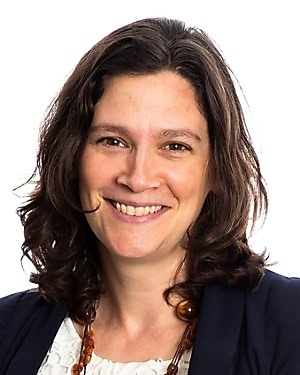Takeaway
When asking patients and others how they are doing post-pandemic, consider opening with, “I know the transition back to ‘normal’ hasn’t been easy for everyone.” Then leave time for responses other than “fine.”

Connecting with patients | May 8, 2023 | 1 min read
By Rheanna Platt, MD, MPH, Johns Hopkins Medicine
When we ask, “How are you?” it’s important to leave time for the answer not to be “fine.” One way to do this is to put it out there directly, saying that we know that this time of transition hasn’t been easy for everyone, and/or that it may bring new challenges.
The spring of 2023 is momentous–mask requirements are changing and the public health emergency is ending. Many of us are cautiously beginning to walk into social settings and venues unmasked, relishing reconnecting with friends and colleagues in-person. In a nutshell, feeling a return to normalcy, or perhaps a version of normalcy that includes more virtual options. For many, this is a welcome change.
But . . . not for everyone. Some patients may be struggling with the change. For instance, a return to “normalcy” may be a return to challenging situations–school or workplace bullying, for example. And there are some who simply can’t return to “normal”–those with immune deficiency, chronic conditions, loss of loved ones from COVID, just to name a few. These people may feel isolated and alone.
As we reach what feels like a turning point, perhaps it’s a good time to pause and take stock of things with our patients. To leave space to recognize and acknowledge the weight of the past three years. To normalize, for many, that the weight may not be gone.
When we ask, “How are you?” it’s important to leave time for the answer not to be “fine.” One way to do this is to put it out there directly, saying that we know that this time of transition hasn’t been easy for everyone, and/or that it may bring new challenges. In so doing, we may uncover new ways to help our patients and others.
This piece expresses the views solely of the author. It does not necessarily represent the views of any organization, including Johns Hopkins Medicine.

